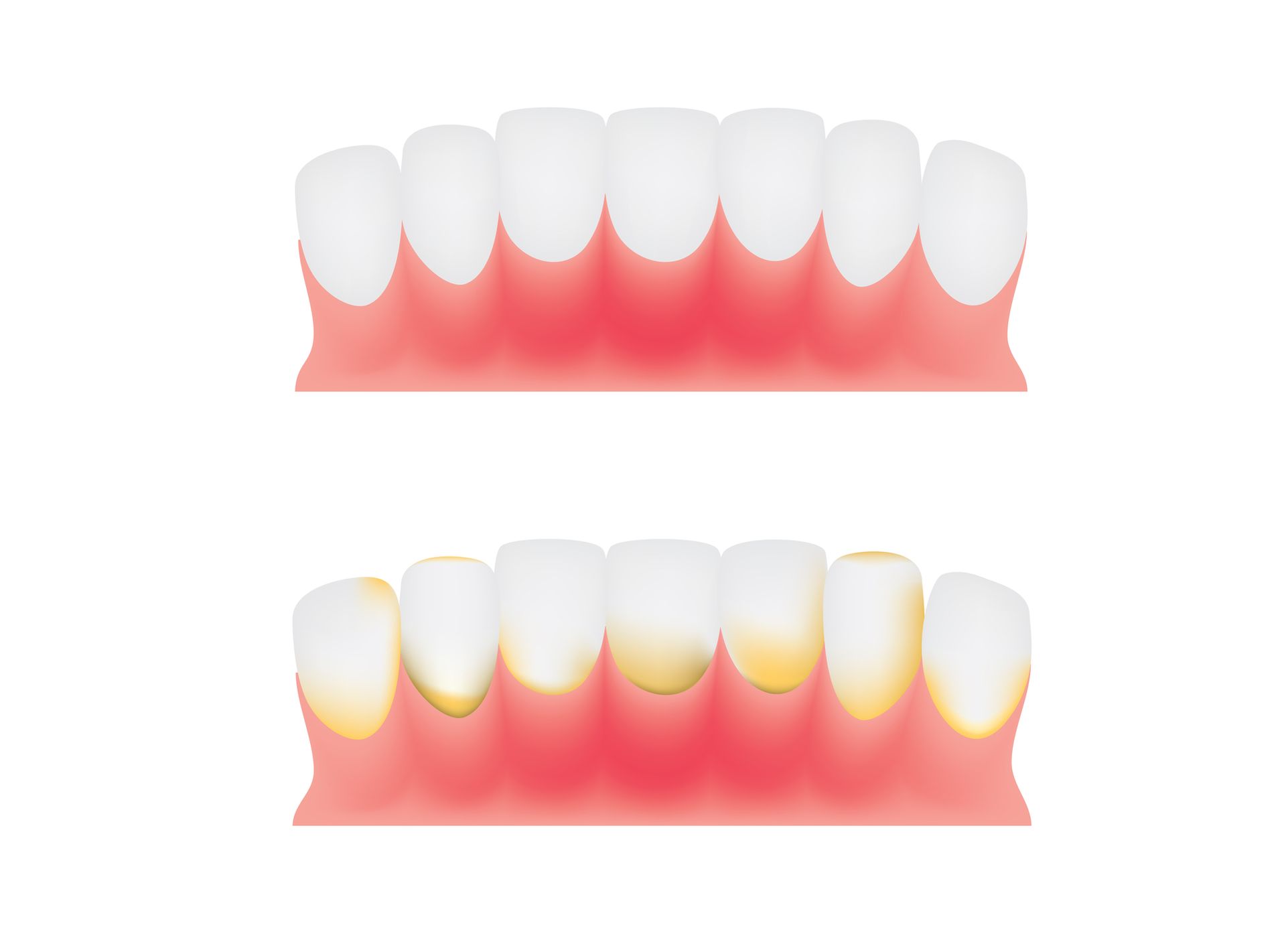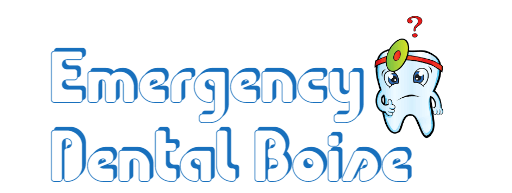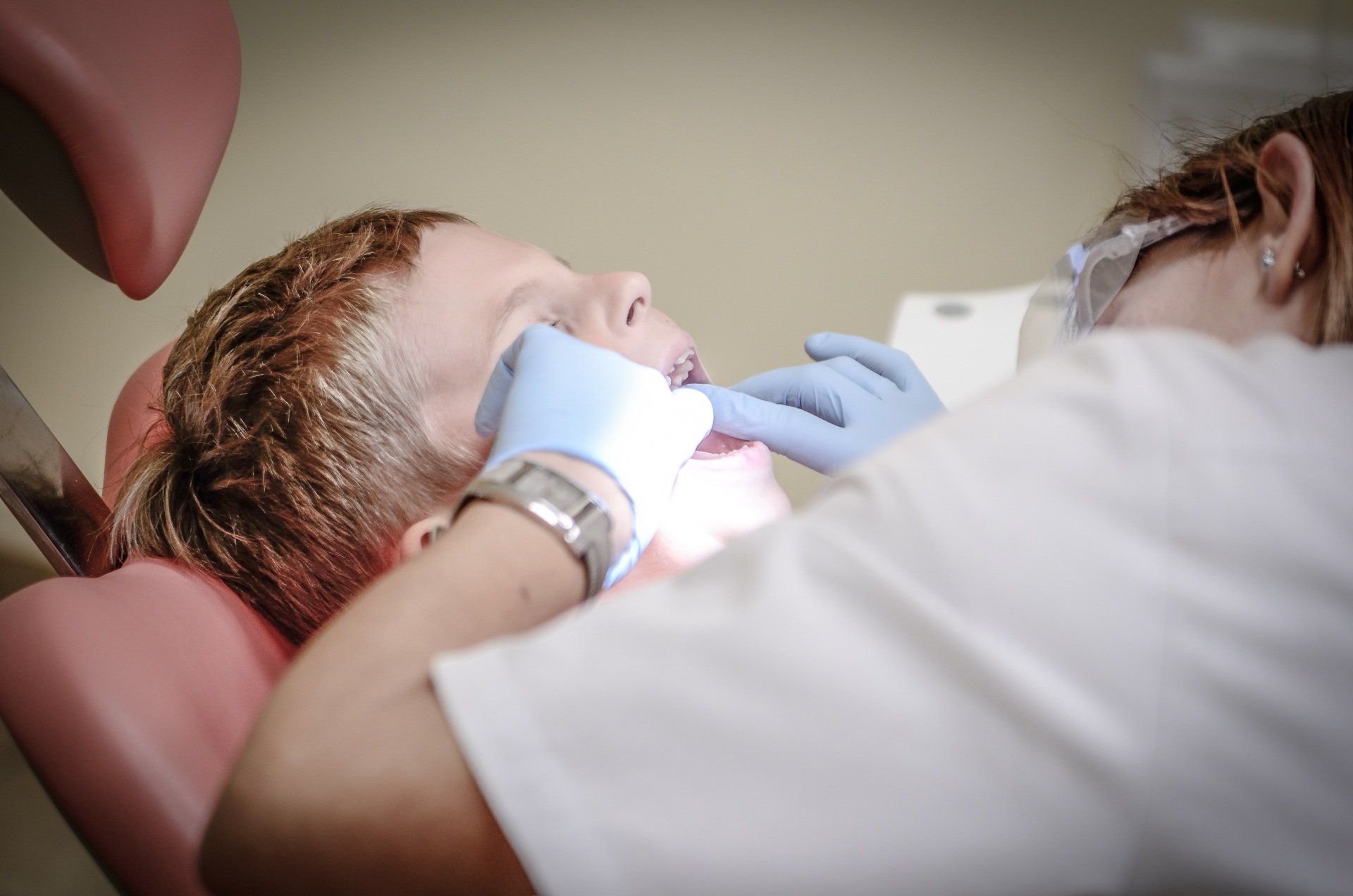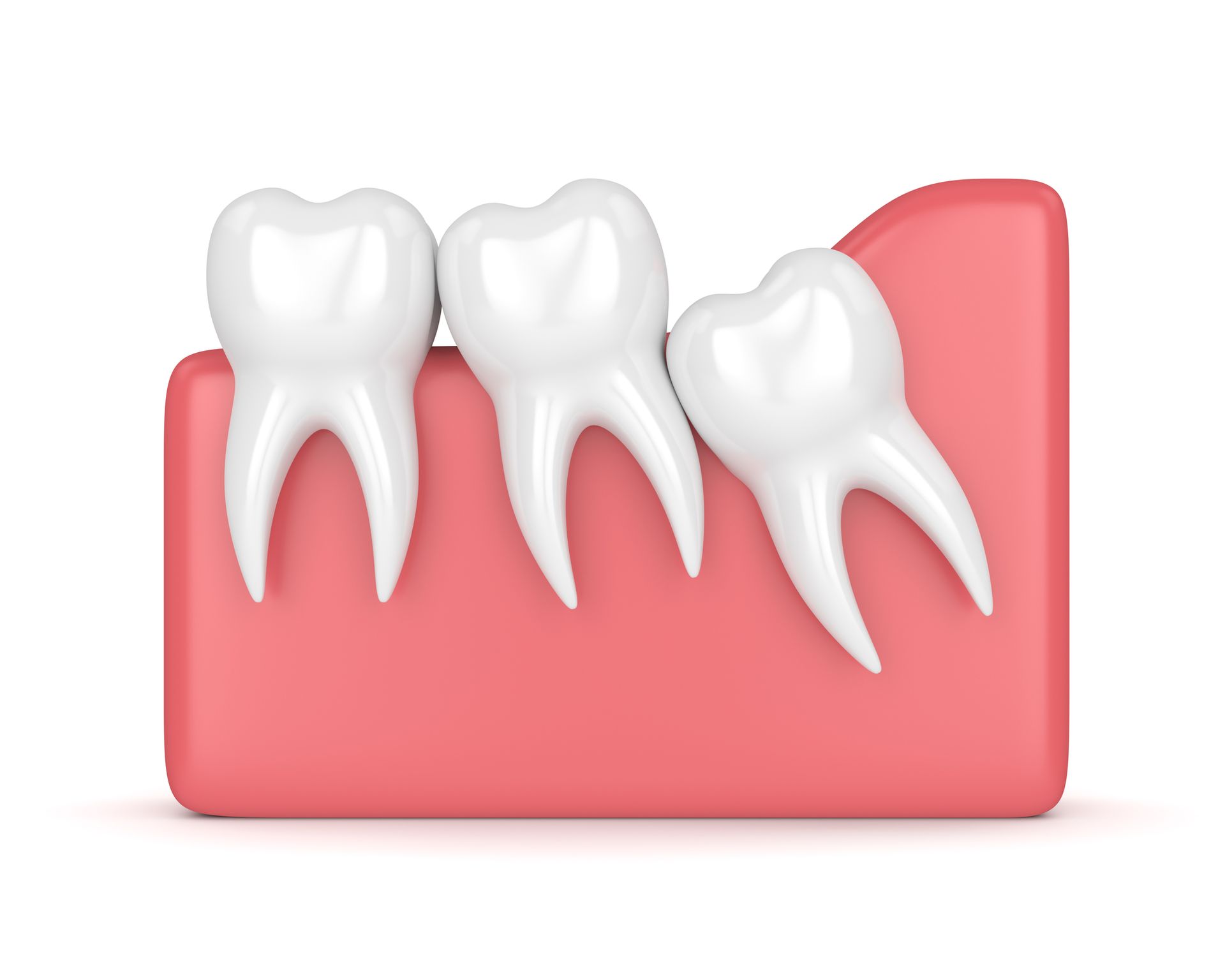Gum Disease: Symptoms, Causes, and Treatment | Emergency Dental Boise

Emergency Dentist Of Boise Shares Gum Disease: Symptoms, Causes, and Treatment
Periodontal disease, or gum disease, is an infection of the gums and the tissues that hold the gums and teeth together. Inflammation of the gums is the first symptom of this bacterial infection, which can also affect the bone and soft tissues that hold teeth in place. Gum disease is a major cause of tooth loss and other health issues if it is not treated.
Gingivitis and periodontitis are the two most common forms of gum disease.
Gum inflammation is the hallmark of gingivitis, the less severe form of periodontal disease. Plaque buildup on the teeth is a common contributor to this condition. Gingivitis manifests itself clinically through gums that are red, puffy, and bleed easily. Gingivitis is reversible with the right care and regular dental hygiene.
Moreover, periodontitis is a severe form of gum disease. When gingivitis is not treated, the infection can spread to the bone and soft tissues that hold the teeth in place, resulting in periodontitis. This can lead to gum recession and, ultimately, infection in the spaces between the teeth and gums. Wear and tear on the bone and connective tissue that hold the teeth in place can lead to tooth loss.
Symptoms Of Gum Disease
- Red and swollen gums. Red and swollen gums This can happen when plaque and bacteria build up on the teeth and gums. This can irritate the tissues and cause swelling. You might notice that your gums are shiny and swollen, and they might hurt or feel tender when you touch them.
- Bleeding gums. Gum disease can also cause your gums to bleed, especially when you brush or floss your teeth. Healthy gums shouldn't bleed when you brush your teeth or floss, so if you see blood, it could mean that your gums are inflamed and need help.
- Bad Breath. Even after you brush and floss, gum disease can leave you with bad breath or a bad taste in your mouth. This is because the bacteria that cause gum disease make compounds that smell bad and can cause bad breath.
- Receding gums. As gum disease gets worse, the gums may pull away from the teeth and leave spaces, or pockets. This is called gum recession, and it can make the roots of the teeth more exposed, making them more likely to get cavities and be sensitive. You may also notice that your teeth look longer than usual.
- Loose Teeth. If you have advanced gum disease, the bone and tissues that support your teeth can start to break down. This can cause your teeth to become loose or move around. If you notice that your teeth feel loose or are moving around, you should get help right away to prevent further damage.
Causes Of Gum Disease
Gum disease is a serious condition that can lead to tooth loss and other health issues. Knowing what could cause gum disease is important if you want to stop it from starting or getting worse. The most common causes of gum disease include:
- Poor Oral Hygiene: One of the primary factors contributing to gum disease is inadequate oral hygiene. This includes not brushing twice daily, neglecting flossing, and failing to use an antiseptic mouthwash on a regular basis. Plaque buildup due to poor dental habits will cause inflammation which eventually leads to periodontal problems such as gingivitis and periodontitis.
- Systemic Factors: Other systemic factors also play a role in developing gum disease including smoking, diabetes, hormonal changes (especially during pregnancy), certain medications, as well as genetic susceptibility. All these scenarios create an environment where bacteria accumulate more easily leading to infection and further damage.
- Tooth Decay: Tooth decay itself may be linked with increased risk for gum infections by allowing bacteria easier access into the root area below the gum line. Additionally, deep cavities provide areas for bacterial growth that contribute significantly towards development of periodontal diseases.
In order to treat or manage existing cases of gum diseases, it's important to understand how each type should be diagnosed and treated so patients can get back on track with their oral health care goals.
Diagnosis And Treatment Options
Gum disease is a serious problem that needs to be diagnosed and treated to stop it from getting worse. Depending on how bad the symptoms are, X-rays or other imaging tests may also be done. Then, a personalized treatment plan can be made based on what caused the disease, such as a buildup of plaque, food stuck between teeth, or poor oral hygiene. Here are the different ways to treat gum disease:
- Deep Cleaning (Scaling and Root Planing)
Most of the time, scaling and root planing, a deep cleaning method, is the first step in treating gum disease. This means removing plaque and tartar from the teeth and gums and smoothing out any rough spots on the tooth root that could trap bacteria.
2. Antibiotics
In some cases, antibiotics may be given to help control the bacterial infection that is causing gum disease. Depending on the situation, antibiotics can be taken by mouth or put on the skin.
3. Surgery
When gum disease gets worse, it may be necessary to have surgery to fix the damage to the gums and the tissues around them. This can include things like gum grafting to cover tooth roots that are showing, flap surgery to clean out deep pockets of bacteria, and bone grafting to help grow back bone that has been lost because of gum disease.
4. Changes in lifestyle
Changes to your lifestyle can help prevent and treat gum disease, along with professional care. This means doing things like brushing and flossing your teeth regularly, quitting smoking if you do, and eating a well-balanced diet with lots of vitamins and minerals that are good for your teeth.
How To Prevent Gum Diseases
The best way to deal with gum problems is to prevent them from happening in the first place. By being proactive about dental hygiene, you can avoid gum disease from the start. Below are some tips for preventing gum disease:
Contact Us
| Key Tips | Description | Benefits |
|---|---|---|
| Brush Twice Daily | When you brush your teeth twice a day, you get rid of plaque that builds up on the gums and food particles that can help bacteria grow. | Reduces the risk of periodontal diseases, tooth decay, and bad breath. |
| Floss Regularly | Not only does flossing remove plaque from between teeth, it also stimulates blood flow in your gums, which keeps them healthy and strong. | Maximum removal of plaque build-up; prevents infection from forming around your teeth; fresher breath. |
| Visit Dentist | Visiting the dentist every 6 months allows for early detection of any developing problems with your oral health, such as cavities or signs of gum disease.When you go to the dentist every 6 months, any problems with your oral health, like cavities or signs of gum disease, can be caught early. It's important to maintain regular checkups even if you don't have any symptoms yet! | Early detection and prevention of further damage to one’s mouth; better overall oral health care management; peace of mind knowing there won’t be surprise trips to the dentist due to preventable illnesses caught too late in their development stages. |
Top Popular Home Remedy For Gum Diseases
Gum diseases are a common oral health problem that affects millions of people worldwide. Gum diseases, also known as periodontal diseases, are caused by bacterial infection and inflammation of the gums, which can lead to gum recession, tooth loss, and other serious health problems if left untreated. While professional dental treatment is the most effective way to manage gum diseases, there are also several home remedies that can help alleviate symptoms and improve oral health. In this article, we will discuss the top home remedies for gum diseases.
- Saltwater Rinse. Saltwater rinse is one of the most effective home remedies for gum diseases. Saltwater has natural antibacterial and anti-inflammatory properties that can help reduce gum inflammation and kill bacteria. To make a saltwater rinse, dissolve one teaspoon of salt in a glass of warm water and swish the solution around your mouth for 30 seconds before spitting it out. Repeat this process two to three times a day.
- Oil Pulling. Oil pulling is an ancient Ayurvedic practice that involves swishing oil around your mouth for 10-20 minutes to remove bacteria and improve oral health. Coconut oil is the most commonly used oil for oil pulling due to its antibacterial properties. To do oil pulling, take a tablespoon of coconut oil and swish it around your mouth for 10-20 minutes before spitting it out. Do this once a day for best results.
- Tea Tree Oil. Tea tree oil is a natural antiseptic and anti-inflammatory agent that can help reduce gum inflammation and kill bacteria. To use tea tree oil for gum diseases, mix a few drops of tea tree oil with a carrier oil such as coconut oil and apply it to your gums with a clean cotton swab. Alternatively, you can add a few drops of tea tree oil to your toothpaste and brush your teeth as usual.
- Aloe Vera. Aloe vera is a natural anti-inflammatory agent that can help reduce gum inflammation and promote healing. To use aloe vera for gum diseases, apply a small amount of aloe vera gel directly to your gums and massage gently for a few minutes. Alternatively, you can use aloe vera mouthwash or add aloe vera gel to your toothpaste and brush your teeth as usual.
- Turmeric. Turmeric is a natural anti-inflammatory agent that can help reduce gum inflammation and promote healing. To use turmeric for gum diseases, mix a teaspoon of turmeric powder with a small amount of water to form a paste. Apply the paste directly to your gums and leave it on for 10-15 minutes before rinsing with water. Repeat this process once a day for best results.
Are There Any Home Remedies For Gum Issues?
When it comes to gum issues, many people look for home remedies as an alternative to visiting a dentist. To that end, there are several treatments and remedies that can be used at home to help with various gum problems.
Furthermore, some natural home remedies include:
- Gargling salt water - this can reduce pain and irritation caused by swollen gums
- Applying tea tree oil - this has been known to reduce bad breath as well as reduce inflammation due to its antibacterial properties
- Consuming turmeric – it's anti-inflammatory qualities have been found useful for treating inflamed gums
- Aloe vera gel - this acts as an antioxidant, soothing soreness and promoting healing.
Some of these gum problems can be fixed with these easy steps, so you don't have to go to a professional hygienist or dentist. Home treatment options should only be used if the symptoms don't get better after you've taken preventive steps like the ones above about how to keep yourself clean.
Are There Over-The-Counter Products For Gum Issues?
The answer is yes, but it depends on the severity and type of gum issue present. Gum disease can be treated with over-the-counter products like special mouthwashes and toothpastes made with ingredients that kill the bacteria that cause gum disease. Other specialized products like dental floss and interdental brushes can also be used.
These products have been proven to help reduce plaque buildup, prevent bad breath, strengthen teeth, and improve gum health. But more severe cases may need professional help, like periodontal therapy or a deep cleaning by a dentist or hygienist, to be properly treated. But more severe cases may need professional help, like periodontal therapy or a deep cleaning by a dentist or hygienist, to be properly treated.
Is It Necessary To Visit A Dentist For Gum Issues?
Caring for your gums is an integral part of maintaining good oral health. When you have problems with your gums, it can be helpful to see a dentist who is trained in the field and can give you the right treatment and advice. Most of the time, if you have problems with your gums, you should go to the dentist. A qualified dental hygienist can figure out how bad the problem is, give advice on how to fix it, and let you know if you may need more treatment.
You shouldn't forget how important it is to get professional help. If you do, you can get help and take precautions right away, which could prevent harm or discomfort in the future. Visiting a dentist also allows access to treatments such as deep cleaning and root planing that cannot typically be done at home; both of these procedures play an important role in managing gum disease.
See A Trusted Emergency Dentist At Boise, ID
Gum problems are common and can make you feel uncomfortable, hurt, or even cause you to lose teeth. Using toothpaste is one way to help treat mild gum problems. Taking preventative measures, such as visiting the dentist regularly and brushing twice daily with an ADA-approved toothpaste, is one way to help treat mild gum problems. However, when gum issues arise, it is important to take action in order to avoid serious health risks.
It's easy to ignore the signs of gum disease, but this should never be mentioned because it could lead to very bad things. So, taking care of your teeth now and going to the dentist when you should can save you time and money in the long run and keep your smile looking great! Schedule your appointment with a Boise emergency dentist to help you treat your gum disease. See more of our services!




